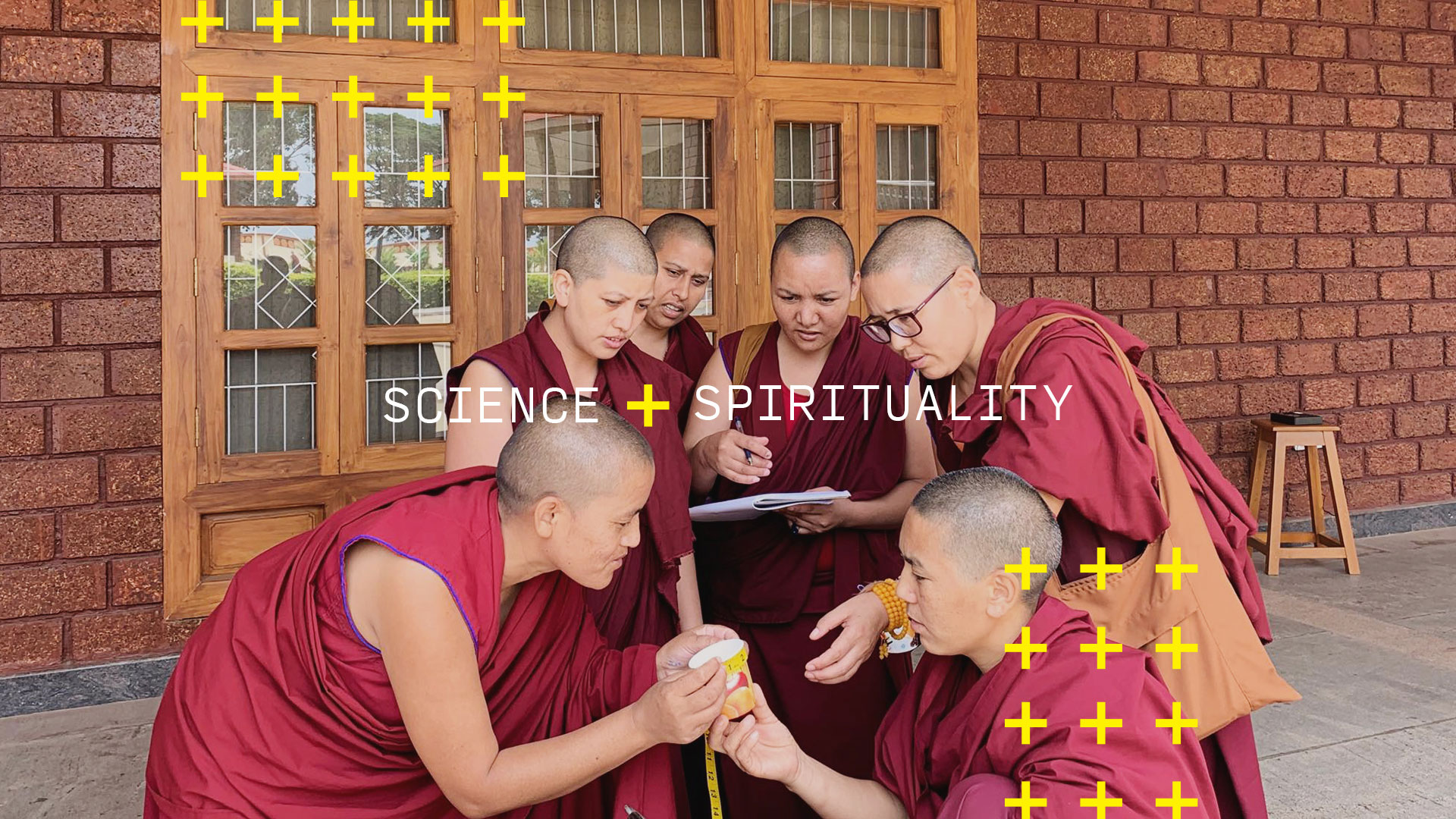
What if religions promoted the convergence of science and spirituality? Led by Lobsang Negi at Emory University, The Emory-Tibet Science Initiative (ETSI) is a landmark undertaking promoting the convergence of science and spirituality. An educational program specifically designed to teach modern science to Tibetan monastics, ETSI began when His Holiness the Dalai Lama invited Emory University to collaborate with the Library of Tibetan Works and Archives.
The ultimate goal of ETSI is to build a bridge between two complementary systems of knowledge by educating future scientific collaborators who can contribute to new discoveries in the science of mind and body.
Offered previously to monks with funding provided by TRT (TRT0060), ETSI courses have now been extended to nuns.
Thanks to the encouragement of His Holiness the Dalai Lama and the support of the John Templeton Foundation, the first cohort of nuns enrolled in the ETSI program in the summer of 2017. ETSI identified classroom space and earned support from faculty to continue expanding the program for nuns in 2018.
As a result of this project being funded, a second year of summer intensive courses was offered to 43 nuns from 5 nunneries. They received a solid introduction to the nature and scope of contemporary science, its methods of investigation, and fundamental concepts in philosophy of science, physics, biology, and neuroscience, leading to an increased appreciation for and interest in topics at the intersection of contemporary science and Buddhism, particularly in the contemplative and mind-body sciences. With this training, these nuns can now provide science education for their local Tibetan monastic and lay communities
While western science has focused primarily on an exploration of the outer world, the Tibetan tradition devoted itself to rigorous investigation of the inner world. Only recently has western science begun to probe some of the same fields of inquiry the Tibetan tradition has spent centuries exploring and enriching: science of mind, the nature of the person and the cosmos, and integrative approaches to mental and physical health. Ongoing scientific research is now demonstrating a host of tangible benefits connected to the practice of inner qualities such as compassion, mindfulness, loving kindness, and forgiveness.
This project has had enduring impact on the quality of science education available to Tibetan nuns across India, and by extension, the pursuit of Geshe degrees among nuns.